Since the innovation of television, journalism has been tied to it with such programs as 60 Minutes, 20/20, and Dateline, just to name a few. However, there have also been many television shows featuring journalist characters. While there have been many greats such as Murphy Brown, Will McAvoy, Bill McNeal, and many more, the most legendary of them can be deemed Lou Grant.
Gruff with a sometimes rotten temper, television audiences got to meet Lou Grant when he was the news director of WJM-TV’s newsroom on The Mary Tyler Moore Show. He later became the city editor of the Los Angeles Tribune in the self-titled spin-off, Lou Grant. During his time on the air, Lou went from being the gruffly comedic boss who “hates spunk” to the father figure and moral compass for the reporters of the Los Angeles Tribune. The changes in the character from one show to the other not only reflect the changes in the genre of each show he was in but also the changes in the character’s attributes as well.
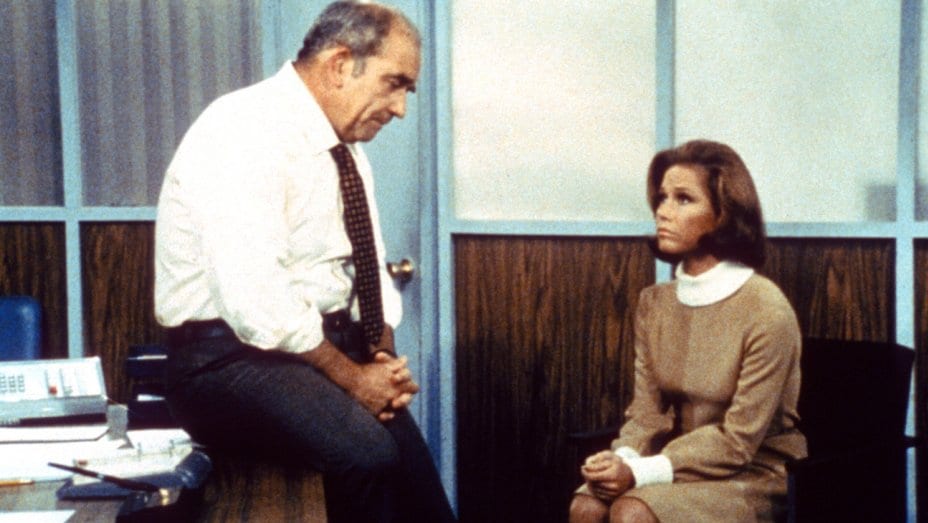
One thing that is notable about Lou Grant is the second series he was on. Unlike the characters of Frasier Crane and Det. John Munch, who shifted over to shows similar to those the character originated in, Lou goes from comedy to drama. This led to many, if not most, of the personality traits that were used for comedy on The Mary Tyler Moore Show being toned down. The biggest example of this is his alcoholism, which was used to comic effect in almost every episode of the series.
Throughout the run of The Mary Tyler Moore Show, Lou was known to have a bottle of scotch at his desk which kept him level-headed during the day, unless Ted Baxter, played by Ted Knight, wanted to talk to him about something inane. However, Lou’s gruff demeanor was a front for his actually kind-hearted and benevolent nature. Lou Grant has a strangely poetic history on television as his character fights for what he believes in, much like the man who portrayed him, Ed Asner. We decided to take a look back at Lou’s humble origins in comedy and his demise in drama.
1970-1977: The Mary Tyler Moore Show
Mary Richards, played by Mary Tyler Moore, was in need of a job once she moved to Minneapolis. Little did she know one would be waiting for her at WJM-TV where she had a less than ideal interview with Louis ‘Lou Grant’. He initially dislikes Mary for her upbeat positivity and the ability to turn the world on with her smile. Thus he looks at her and utters the immortal line, “You’ve got spunk. I hate spunk!”
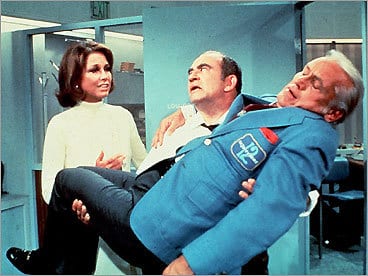
Lou comes off initially as standoffish towards Mary but as the series goes on he warms up to her. He is friendly with news writer Murray Slaughter, played by Gavin MacLeod, and sees his high ideals of journalism obliterated in Ted. Lou started out the series married with three daughters but got a divorce in Season 3. He was also quite chauvinistic as he focused on physical appearance and hiring men over women. During the second season episode “Feeb” he refuses to hire someone based on her physical appearance alone. After he is divorced, he develops a relationship with Mary’s Aunt Flo, a seasoned journalist who spends her days chasing high-profile stories. Their relationship almost blossoms into marriage but Flo is unable to give up her fast-paced life.
A hardened journalist, he refuses to go along with any attempts to sweeten the news, which are usually made by Mary. During the first episode of the show’s third season, “The Good Time News”, Lou and Murray get drunk while watching Mary’s upbeat albeit disastrous attempt at making the news positive. The infamous phrase, “If it bleeds, it leads” seems to be something that Lou lives his life by. Even though this does put a damper on some of the news, there are plenty of times when Lou’s investigative instincts come back to him. The plot for Episode 19 of the show’s fifth season, “The Shame of the Cities,” involves Lou trying to write an investigative news piece again. However, he cannot find a juicy enough story for him to write about. It would take the series, Lou Grant, for him to find that investigative spirit again. However, there is a trait about him that was never fully explored.
The biggest character trait of his is the drinking that made him such a staple, specifically him keeping a bottle of scotch handy in his desk. However, in one episode of the show, when he has to sub for Ted as the anchor of The Six O’Clock News, he finds that his drinking keeps him loose. When he’s sober, he reads the news and slightly babbles incoherently. However, as he starts drinking, he begins to read the news like a professional. Since Lou’s career before WJM was predominantly in print media, this could be a sign that he is camera shy.
During this show’s run, Lou’s drinking was rarely something that people addressed, though he was seen doing it with great frequency. In fact, it was a subject mostly used for comic effect. Since the character’s ‘comic traits’ were toned down for the latter series, Lou Grant, his alcoholism is never discussed again. Though most shows would use alcoholism as a plot point for more dramatic angles, The Mary Tyler Moore Show was so heavily focused on comedy that this was mostly used to express Lou’s frustrations with people (Ted Baxter) and many of the zany situations brought on by the situations he finds himself in. Though he was seen drunk in a few episodes, Lou can be considered a functioning alcoholic since he never lets it cloud his judgment or impair his ability to do his job.
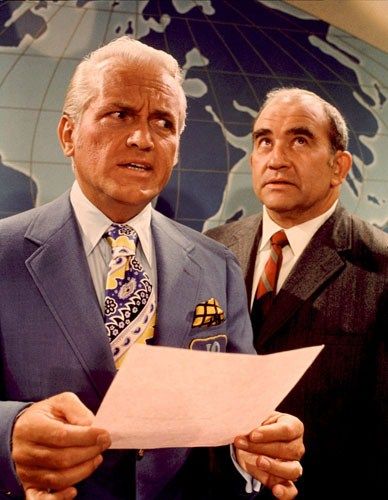
Lou’s characteristics throughout the show are limited to being a grouch and mostly being a mentor for Mary. Their relationship seems like the precursor to that of Jack Donaghy and Liz Lemon on 30 Rock. Much like Jack guiding Liz through the rocky road that is life, Lou is often a smooth-talking alcoholic that guides Mary through her new career in journalism. Along the way, though, he does get sucked into Mary’s personal affairs more often than he’d like.
For one thing, he has been the victim to most, if not all, of Mary’s awful parties. Whether it was the power going out when she is supposed to meet Johnny Carson, having a party where two people break up, or the many other terrible ones, Lou was part of the disaster. He was also the cause of one bad party because Mary got the idea that she would throw him a party considering it was the first birthday he celebrated after his divorce. However, Lou didn’t want anyone coming to the party but Mary was able to convince him otherwise.
In much of the series, he is quite paternal to many of the staffers of WJM, particularly Mary. The series changed after Mary’s friends Rhoda and Phyllis moved away as it began to focus on her life at work, meaning Lou was seen more often now. Mary is the genuine soft spot in his heart because he does things for her that he would never do for others. The biggest piece of evidence of this is when he goes to tremendous lengths to keep her from growing dependent on sleeping pills in the seventh season episode, “Mary’s Insomnia”.
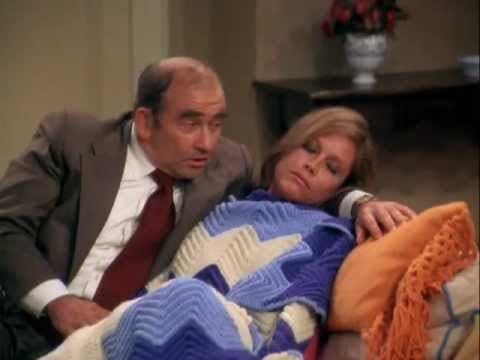
Lou throws the pills away, he constantly asks Mary if she is on the pills and, in an embarrassing moment, he goes to Mary’s apartment and catches her in the tub. Finally, he throws the pills down the drain and sings Mary to sleep the way he would his daughters. However, there was one question which soon got answered—would Mary and Lou make a good couple?
In the penultimate episode of the series, “Lou Dates Mary”, the two realize they might be just the perfect match for each other. They decide to have a date in which they realize just how bad an idea this would be. This was also a shock to the one person who has been trying to get with Lou since she first appeared, homemaking nymphomaniac Sue Ann Nivens, played by Betty White. However, in “The Last Show” Lou’s career, along with that of Mary, Murray, and Sue Ann are brought to an abrupt halt when they are all fired by the new station owner.
1977-1982: Lou Grant
While the others are left to find new careers, Lou heads west to take a position with a former friend of his, Charlie Hume, played by Mason Adams, in Los Angeles. Working for the Los Angeles Tribune opened up a new world for the character of Lou Grant as he started dealing in the world of hard news again. Going from a comedy to a drama gave the character new ways of acting that weren’t simple one-liners aimed at Ted Baxter.
Throughout Lou Grant, things are centered more on how Lou mentors the younger reporters in the newsroom. Joe Rossi, played by Robert Walden, and Billie Newman, played by Linda Kelsey. He works to make sure they are bringing him honest and great stories that have some basis in the episode. Aside from this, Lou also took on a role of increased responsibility. He was regularly seen in meetings with other editors from the newspaper and, aside from Charlie, became the confidant of the newspaper’s publisher, Margaret Pynchon, played by Nancy Marchand.
Lou Grant also examined the character’s emotional state throughout full episodes with the most vulnerable moment coming from the episode, “Lou.” The episode is mostly a walkthrough of Lou’s day but he slowly gets angrier and angrier as the day goes on. It’s revealed to be because he has had to postpone his vacation several times and has been overworked. Charlie finally forces him to take some time off and getaway. Lou’s overall cuddliness and warm spot, much like that which he had for Mary. remains prevalent in the new series. However, he wanted to get more involved in the work of his reporters. Lou was more interested in working with the reporters to help them in any way he had to.
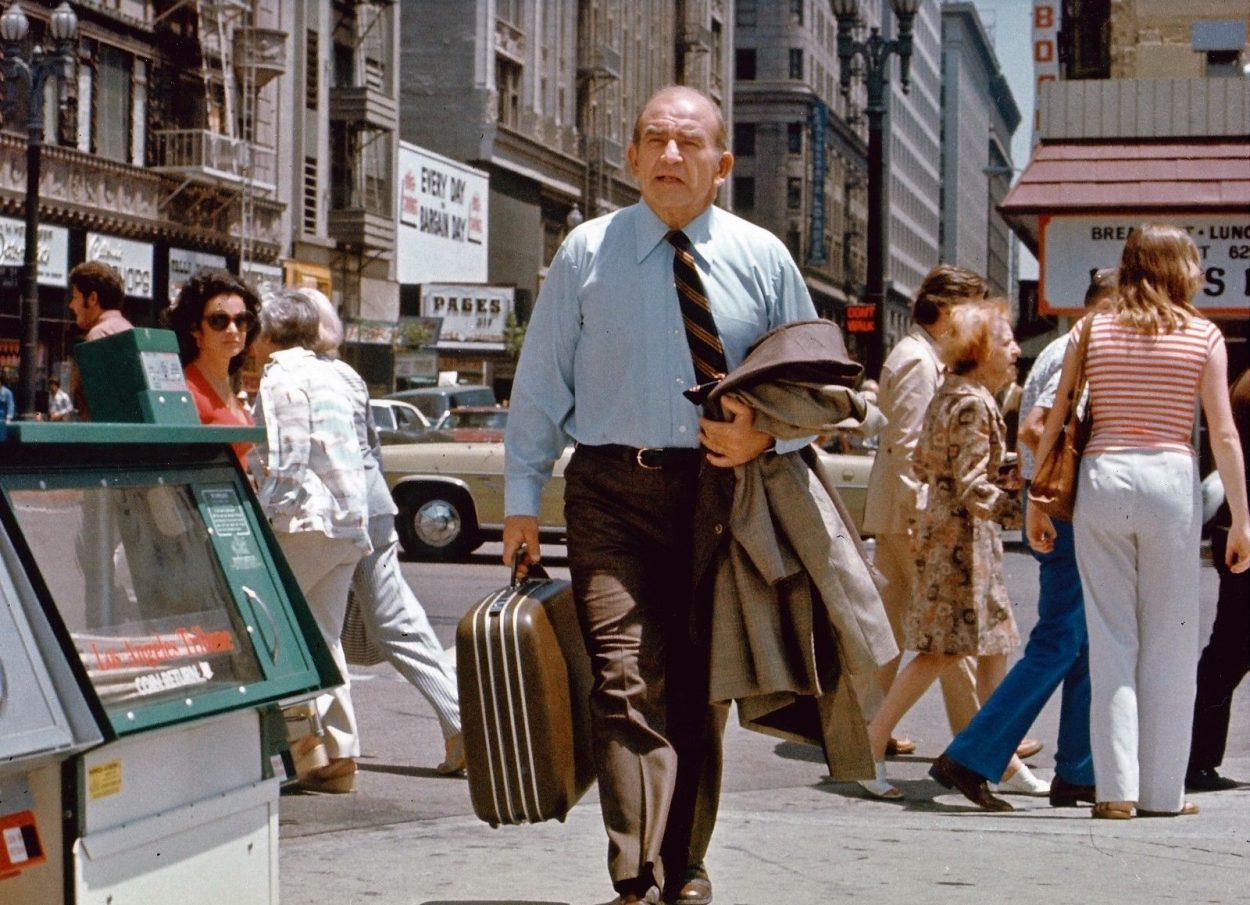
Aside from this, much of the show was kind of an anthology about the stories of the reporters, or the stories that came from the staff photographer, Animal, played by Daryl Anderson. Lou was always able to lend an ear to keep his reporters from going insane from the weekly tragedies they would see. He would also have to keep them on a leash when they needed to. He mostly clashed with Rossi, who felt that Lou was caught in too many old school journalistic practices. He also became a fence between those who wanted to take the Los Angeles Tribune from Mrs. Pynchon.
This happened when she had a stroke at the end of the fourth season, where her nephew’s tried to sell the newspaper. One thing about this show is that there was a minimal focus on Lou’s life outside of the office unlike his life on The Mary Tyler Moore Show. He was seen mostly trying to build his life after leaving Minneapolis. One thing to note is that none of the other characters from The Mary Tyler Moore Show appeared on Lou Grant.
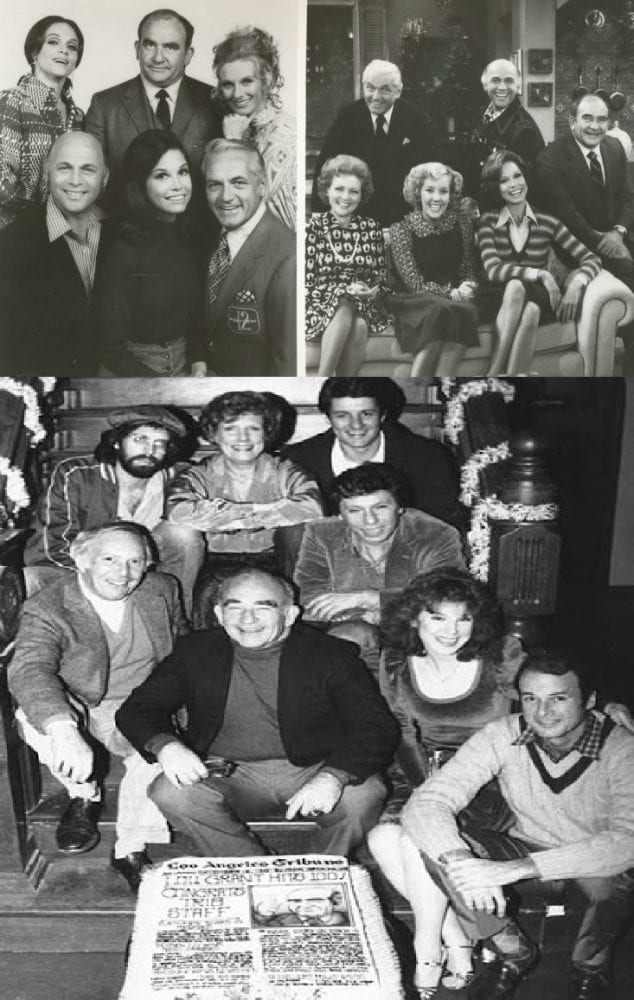
Some of the plots of the show put Lou in the spotlight in order for other characters to develop. During the final season, he was shot by a robber in a parking lot and everyone gathered around him during his time in the hospital. For the most part, this show was not afraid to pull at the heartstrings especially when the staff would rally together in times of crisis. One example of this is during the third-season episode “Blackout”. An earthquake forces the Tribune to put an issue out when printing presses are unable to function. The staff comes together to help get the issue to a printing press but are pressed for time when they have to
Along with being a unique boss, he was able to impart his wisdom on his staff without them writing him off much like Ted Baxter. His most lovable trait in this iteration of the character’s life is how he manages to step up when he needs to. Lou Grant was one of the funniest characters while always being dedicated to his work and not standing for anyone’s nonsense. However, the series was cut short when it was cancelled after its fifth season. The final episode of the series was called “Charlie” which was similar to the earlier episode “Lou,” but this centered on Charlie’s daily interactions with people as something is bothering him. The show’s ending was going to be the Los Angeles Tribune going out of business. Lou Grant created the stereotype of a boss that’s got a heart of gold but won’t let you see it. He makes sure that people respect him by keeping them at a distance, though he knows who he can allow to be close to him.
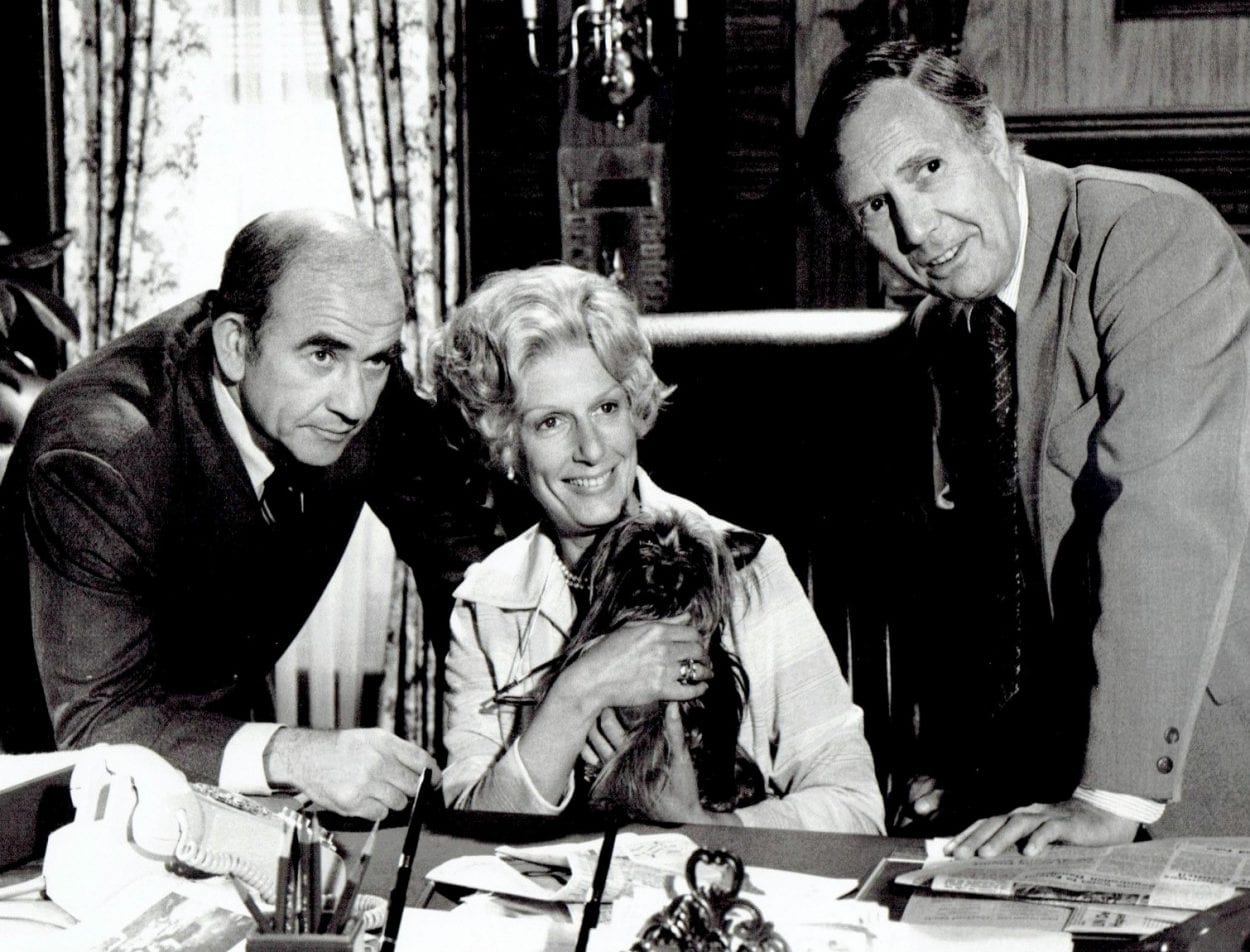


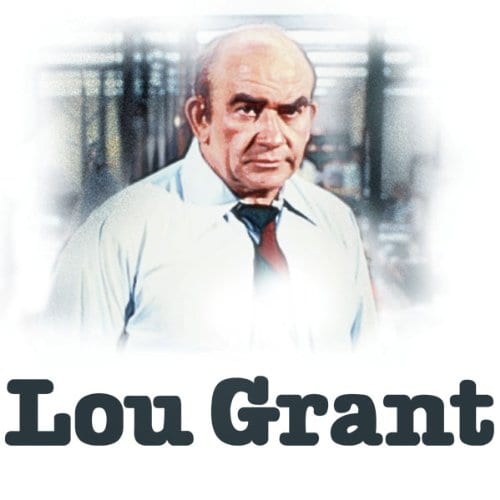
Great recap of the career of a true newspaperman and one of my favorite TV characters of all time. Thanks!
RIP Ed Asner, also they did do an episode of Lou Grant where Lou was arrested for drunk driving.
Nicely done, my friend.
It is a shame that Lou Grant did not receive an extra season or two, but at least we had a chance to imagine the real life of reporting from a newspaper perspective and how the character, once a beloved TV comedy icon, could truly be a man of conscience and leadership.